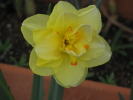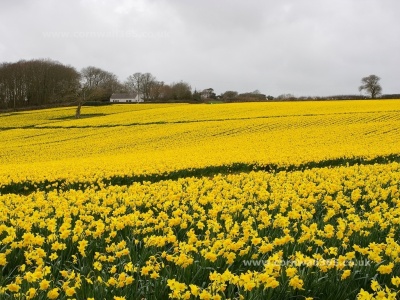“Life has no meaning. Each of us has meaning and we bring it to life. It is a waste to be asking the question when you are the answer.” ― Joseph Campbell
The Meaning of Life comes from within oneself in what you do and what you try to achieve. Take stock of what harm you might inadvertently be doing and what good you are seeking to serve and how you hope to accomplish it. Believing is the necessary first step, but it is the doing that sets us apart.
Some people want to know the meaning first before they feel they can rise to act. But meaning is something we give to our actions. Meaning comes from doing. Regardless of whether we believe there is a higher power, or whether that power has a purpose for us in this life, no matter how weary one's soul feels, no matter how purposeless one may think one is, no one is too small or too insignificant to make a difference. The quality of the world is affected by all its peoples no matter where they live. Just the way even the tiniest flicker of a small flame throws light in a dark room, the simplest of acts add light to someone stuck in a dark corner. Whenever any one strives to make even the smallest effort to help someone be it a person or creature, or to make something better, they add value to the world.
A world in peace and harmony are not external events that descend on the planet as an external event and keep the world locked in a frozen state. It takes a continuous flow of kindness from hundreds of millions of good deeds by hundreds of millions of people to fill the billions of moments that fill life to create a kind, compassionate and peaceful world for all its peoples. It's easy to listen to the awe inspiring stories of the great leaders and feel one is too lowly, or too untalented to matter, but this is not true. Take the example of a carpet, every thread contributes to its magnificence. In the web of life too, everyone matters. Each day, find the one thing you can do and do it. It will start changing the world around you and as the world changes you will see the meaning emerge.
The best part is that humans are social animals and no one is alone. Every single person does not have to think of a unique cause and climb a mountain all by oneself. One can find numerous causes or projects that help others and become part of the team.
There is more than one meaning to every life - what our lives mean to us and what it means to the people, the creatures and the environment around us. If in one's darkest hours one feels that there is no one for whom one's life holds purpose, then one is looking for approval from certain sources rather than meaning. For meaning one has to find the motivation for one's actions. There's always someone worse off than you and there's always someone or some creature you can benefit. The decision is yours to act with that intention and start giving your life meaning.
“At the centre of your being you have the answer.” Lao Tzu
There is a very inspiring story of the Daffodil principle that has done the rounds of cyberspace via email. I don’t know the originator so can’t acknowledge her and express my gratitude for sharing this tale, but I’m sure you’ll agree that this is a beautiful story.
 The Daffodil Principle
The Daffodil Principle promised a little reluctantly on her third call.
Next Tuesday dawned cold and rainy. Still, I had promised, and reluctantly I drove there. When I finally walked into Carolyn's house I was welcomed by the joyful sounds of happy children. I delightedly hugged and greeted my grandchildren.
"Forget the daffodils, Carolyn! The road is invisible in these clouds and fog, and there is nothing in the world except you and these children that I want to see badly enough to drive another inch!"
My daughter smiled calmly and said, "We drive in this all the time, Mother." "Well, you won't get me back on the road until it clears, and then I'm heading for home!" I assured her.
"But first we're going to see the daffodils. It's just a few blocks," Carolyn said. "I'll drive. I'm used to this." "Carolyn," I said sternly, "Please turn around." "It's all right, Mother, I promise. You will never forgive yourself if you miss this experience."
After about twenty minutes, we turned onto a small gravel road and I saw a small church. On the far side of the church, I saw a hand lettered sign with an arrow that read, " Daffodil Garden ." We got out of the car, each took a child's hand, and I followed Carolyn down the path. Then, as we turned a corner, I looked up and gasped. Before me lay the most glorious
sight.
It looked as though someone had taken a great vat of gold and poured it over the mountain peak and its surrounding slopes. The flowers were planted in majestic, swirling patterns, great ribbons and swaths of deep orange, creamy white, lemon yellow, salmon pink, and saffron and butter yellow.

"Who did this?" I asked Carolyn. "Just one woman," Carolyn answered. "She lives on the property. That's her home." Carolyn pointed to a well-kept A-frame house, small and modestly sitting in the midst of all that glory. We walked up to the house.
On the patio, we saw a poster. "Answers to the Questions I Know You Are Asking", was the headline. The first answer was a simple one. "50,000 bulbs," it read. The second answer was, "One at a time, by one woman. Two hands, two feet, and one brain." The third answer was, "Began in 1958."
For me, that moment was a life-changing experience. I thought of this woman whom I had never met, who, more than forty years before, had begun, one bulb at a time, to bring her vision of beauty and joy to an obscure mountaintop.
Planting one bulb at a time, year after year, this unknown woman had forever changed the world in which she lived. One day at a time, she had created something of extraordinary magnificence, beauty, and inspiration. The principle her daffodil garden taught is one of the greatest principles of celebration.

That is, learning to move toward our goals and desires one step at a time--often just one baby-step at time--and learning to love the doing, learning to use the accumulation of time. When we multiply tiny pieces of time with small increments of daily effort, we too will find we can accomplish magnificent things. We can change the world ...
"It makes me sad in a way," I admitted to Carolyn. "What might I have accomplished if I had thought of a wonderful goal thirty-five or forty years ago and had worked away at it 'one bulb at a time' through all those years? Just think what I might have been able to achieve!"
My daughter summed up the message of the day in her usual direct way. "Start tomorrow," she said.
She was right. It's so pointless to think of the lost hours of yesterdays. The way to make learning a lesson of celebration instead of a cause for regret is to only ask, "How can I put this to use today?"





Recent comments
9 years 1 week ago
9 years 12 weeks ago
9 years 12 weeks ago
9 years 12 weeks ago
9 years 13 weeks ago
9 years 14 weeks ago
9 years 14 weeks ago
9 years 15 weeks ago
9 years 15 weeks ago
9 years 15 weeks ago